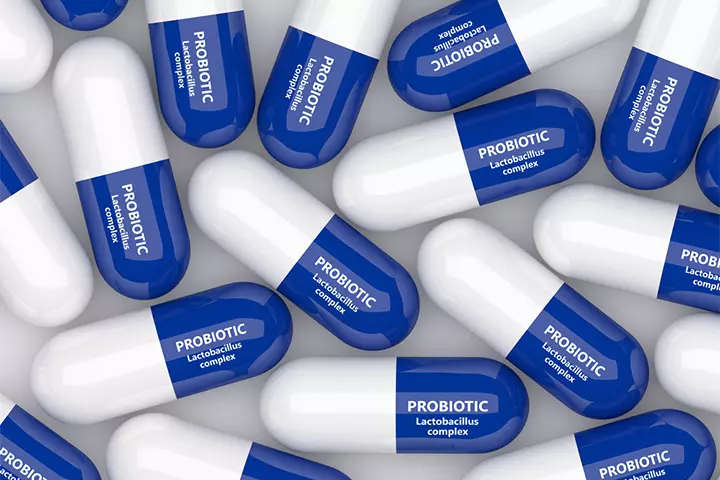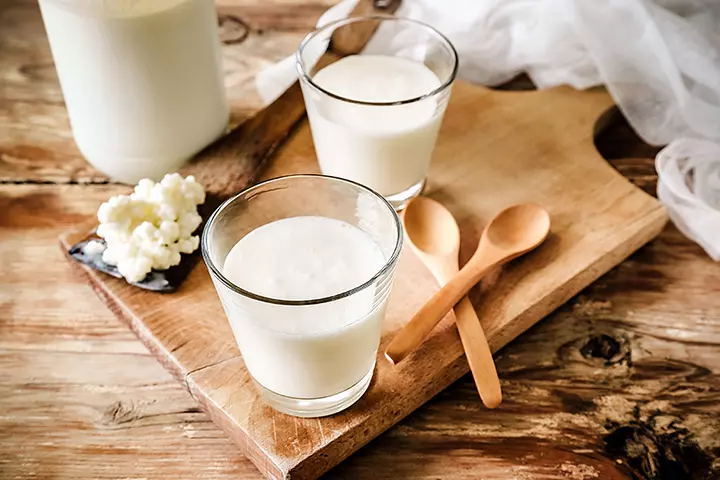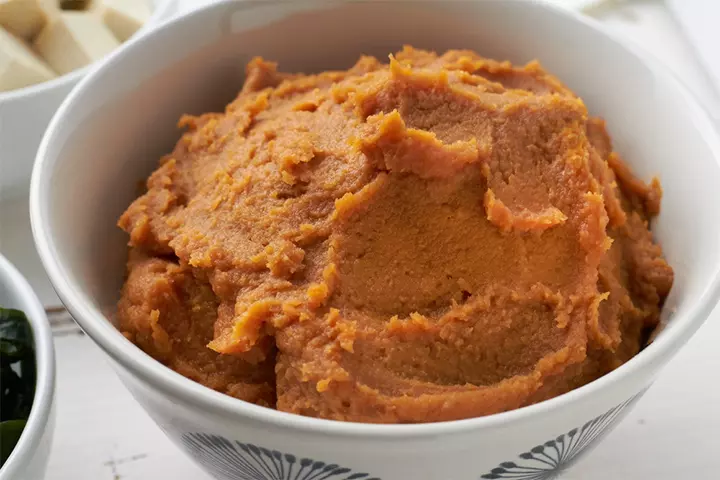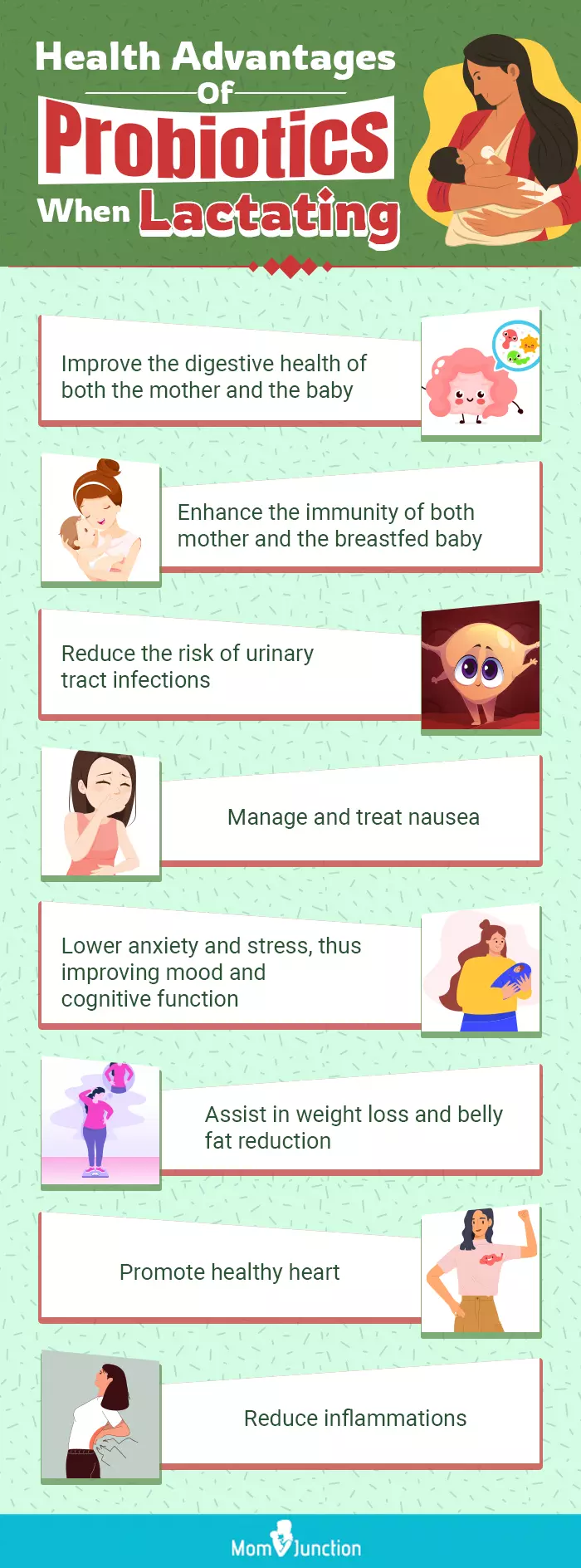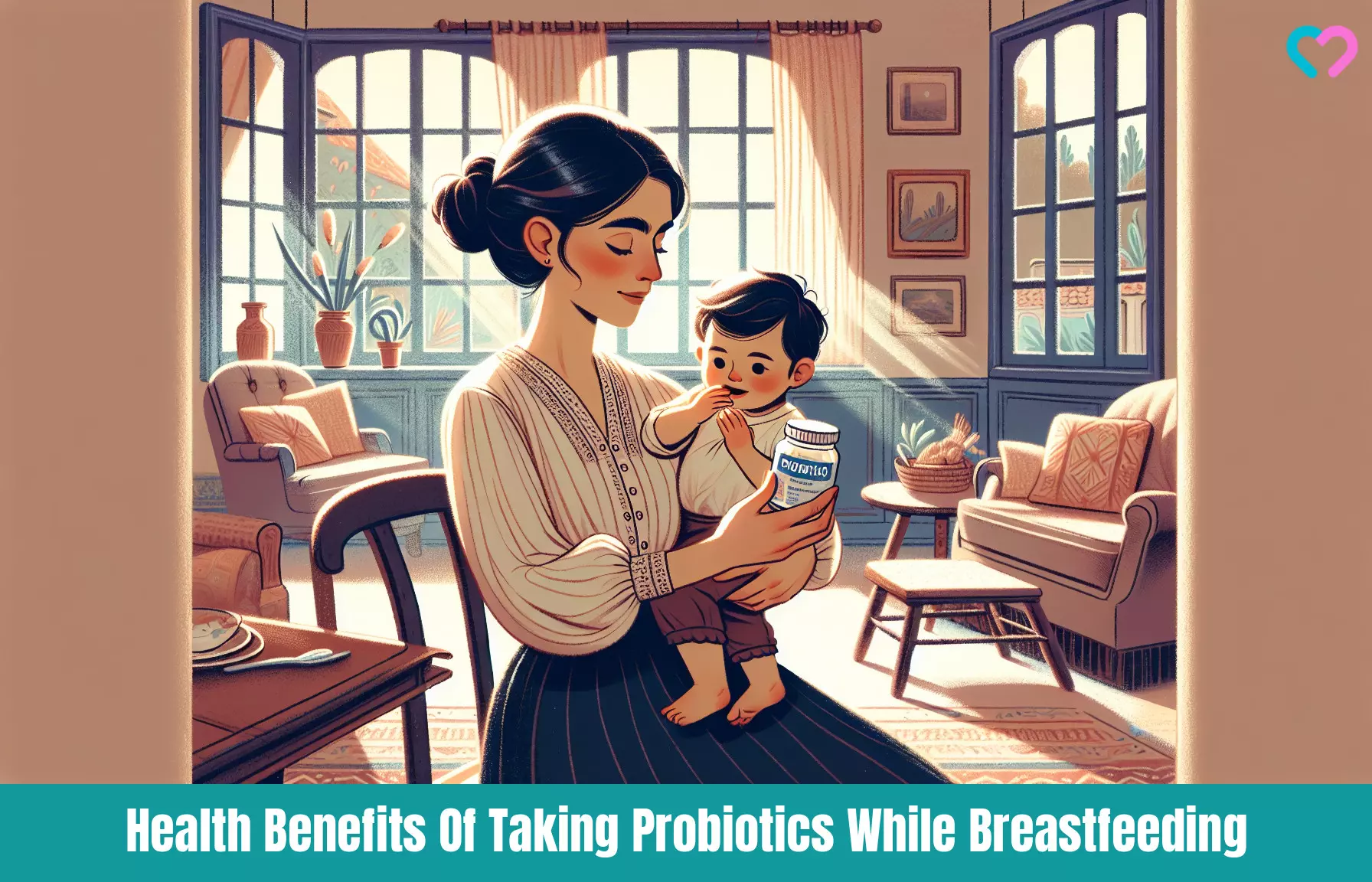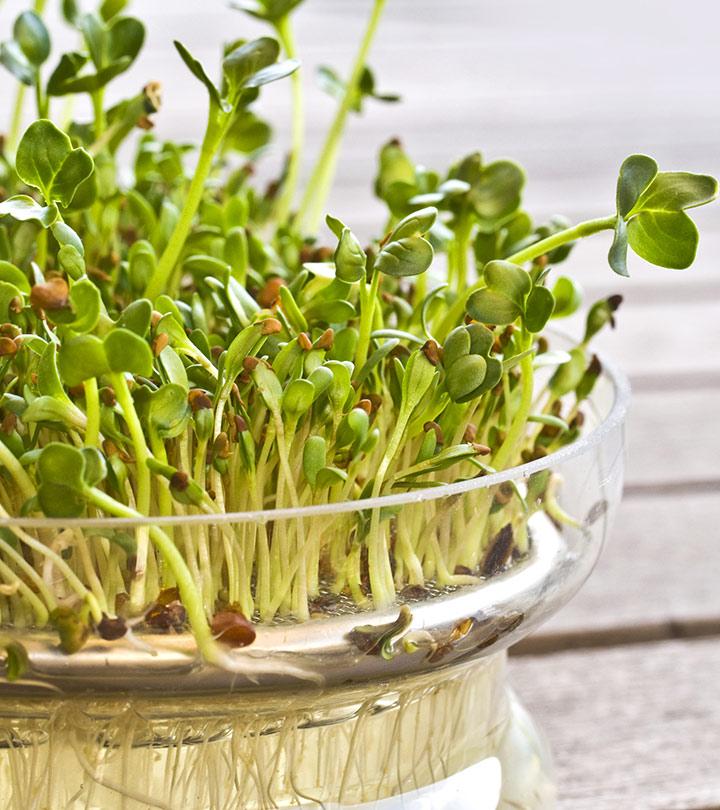
Image: ShutterStock
Probiotics are living microorganisms similar to healthy bacteria normally present in the human gut. These microorganisms have several health benefits and therefore have become a popular dietary supplement in recent times. However, the health benefits of probiotics for breastfeeding mothers and their babies are yet to be explored and established. So, can breastfeeding mothers add probiotics to their regular diet? We have compiled information about the safety, facts, health benefits, side effects, and natural sources of probiotics for breastfeeding mothers. Read on to know more.
Are Probiotics Safe When Breastfeeding?
Probiotics are safe to take when breastfeeding. When used orally or as a vaginal suppository, they are generally well-tolerated and are considered safe (1). Research suggests that their persistent use could enhance the immunoprotectiveiThe ability of a substance to boost the immune system and protect against diseases and infections potential of breast milk (2). However, you need to talk to a doctor or lactation expert before taking any nutritional supplements when breastfeeding.
However, you need to talk to a doctor or lactation expert before taking any nutritional supplements when breastfeeding. Each individual may have different health conditions or dietary needs that require tailored advice.
 Did you know?
Did you know?Important Facts About Probiotics When Breastfeeding
Image: Shutterstock
- Human milk is a natural source of probiotics for infants. Research shows that human milk has 700 different types of bacteria, including probiotic strains such as Lactobacillus, Streptococcus, Staphylococcus, and Bifidobacterium (3).
- The intake of probiotic supplements by a mother can affect the probiotic composition of breast milk. However, they do not pass to an infant directly via breast milk and do not affect their gut microbiome (1) (4).
Laura Howells, an IBCLC from Albany, California, says, “Probiotics do not pass directly to your baby, but by colonizing your body with good bacteria, those will be passed to your baby in your milk. Breasts have a microbiomeiThe collection of microorganisms (bacteria, viruses, fungi, etc.) that live on and within our bodies of their own to make this possible.”
- Probiotics are available in the form of dietary supplements and foods prepared by bacterial fermentation. Some commercially available probiotics products are broad-spectrum, i.e., these products have different probiotics in the same product.
- The most widely used probiotics are live bacteria such as Lactobacillus and Bifidobacterium. However, some strains of fungi are also probiotic, such as Saccharomyces boulardi, which is a type of yeast (5).
 Quick fact
Quick factPossible Health Benefits Of Probiotics When Breastfeeding
Consuming probiotics when breastfeeding can have several combined benefits for you and your baby.
Mutual Benefits
These benefits come to the mother and could also impact the infant’s health through breast milk.
- Digestive health: The probiotic use has proved effective in several gastrointestinal issues, such as antibiotic-associated diarrhea and inflammatory bowel disease, (6). Therefore, regular probiotics intake may help flourish the gut microbiome and keep the mother’s digestive system healthy. A robust GI tract ensures better absorption of food nutrients (7), and their optimum transfer to the baby through breast milk.
- Immunity: Probiotics have shown to impact the innate immunity of the host (8). Enhanced innate immunity plays a crucial role in managing or preventing autoimmuneiConditions where the immune system mistakenly targets and harms healthy cells in the body, leading to inflammation and tissue damage conditions (9). Mothers who consume probiotics are likely to confer these advantages to their babies as well. For example, a study noted that maternal probiotic consumption had an immunomodulatoryiRegulation of the activities in the immune system to enhance health and prevent illness effect on breast milk. It ultimately reduced the risk of atopic eczemaiA skin condition that causes itching, redness, and dryness, often hereditary and manageable with proper treatment and self-care in the breastfed infants during the first two years of life (2).
Image: IStock
 Did you know?
Did you know?Benefits For Mothers
- Urinary tract infections: Some studies note that the vaginal use of probiotics could mitigate the chances of urinary tract infections (UTIs), including those caused by yeasts (10). However, more research is needed to establish probiotics as a valid treatment for UTIs (11).
- Nausea: A few research studies have promoted the use of probiotics to manage and treat nausea caused by lower GI tract ailments (12).
- Mood and cognitive function: Research suggests that the regular use of probiotics might help improve mood and cognitive function by lowering stress and anxiety (13).
- Help lose weight and belly fat: Certain research studies show that probiotics can potentially help in losing weight and belly fat. They might reduce fat absorption in the small intestine or might make you feel full for longer, thus reducing food intake (14) (15).
- Lactose intolerance: Some strains of probiotic bacteria could improve lactose metabolism, thus helping mothers with lactose intolerance (16).
- Healthy heart: Probiotics are associated with enhanced heart health and probable prevention of coronary heart diseases. It reduces serum cholesterol levels by interfering with cholesterol absorption in the gut. Probiotics also display antihypertensive effects, which allows for blood pressure control (16).
- Inflammation: Various scientific research studies show that the regular use of probiotics has the potential to lower inflammation (17).
- Mastitis: Mastitis infection (inflammation of the breast due to bacterial infection that leads to pain and discomfort in mothers) has a bacterial origin, and it often involves streptococcus epidermis or staphylococcus aureus. Some studies report that probiotics may be effective in preventing the growth and proliferation of mastitis-causing bacteria in the breast tissues (18).
Possible Side Effects Of Probiotics While Breastfeeding
Image: Shutterstock
In the US, probiotics are sold as dietary supplements. They do not undergo the FDA’s stringent testing and approval process mandatory for the regular drugs. (19). Therefore, you need to be extra careful and cognizant of the likely side effects of probiotics (5) (20).
- Mild gastrointestinal issues: You may experience bloating, diarrhea, or stomach cramps initially when consuming probiotic supplements. If the problems persist, then switch to another probiotic or consult your doctor.
- Contamination: There have been cases where probiotic supplements were contaminated by potentially harmful fungi and bacteria. Therefore, only buy probiotic supplements made by trusted manufacturers and sold by authorized retailers.
- Infections: Probiotics might lead to infections in people with suppressed immunity, like those with AIDS or those on some medications.
- Allergies: Probiotic supplements could contain allergens, such as lactose, soy, or prebiotic fibers that may cause adverse reactions in some people. Read the labels carefully before you purchase any over-the-counter probiotics.
- Other reactions: Some other possible side effects of probiotic use include infections, production of harmful substances by the probiotic microorganisms, and transfer of antibiotic resistance genes from probiotic microorganisms.
Foods Rich In Probiotics For Breastfeeding Mothers
If you do not want probiotic supplements, you can consume the naturally occurring probiotics in foods. Here are some probiotic foods nursing moms can add to their maternal diet.
Fermented milk products
Image: IStock
- Yogurt: The fermented dairy product can be prepared at home or purchased from the market. Several types of yogurt exist depending on the number of probiotic strains present in it. You may follow these steps while buying it.
- Read the label and select a variant that has multiple ingredients
- Pick yogurt low in added sugar, high in protein and calcium
- It should be fortified with some essential nutrients, such as vitamin D
 Quick tip
Quick tip- Kefir: The fermented dairy product can be prepared from milk and kefir grains. In comparison to yogurt, kefir has a wider variety of microorganism strains (21).
- Soft cheeses: Not all probiotics may survive by the time they reach the stomach and intestines. Certain types of soft fermented cheese, such as Gouda, contain probiotics that are strong enough to make their way to the gut.
- Acidophilus milk: Regular milk enriched with Lactobacillus acidophilus is a good source of probiotics. This bacterial strain is also found in the human gut, and hence this bacteria is considered beneficial (22).
Buttermilk, sour cream, leben (a type of fermented milk), skyr, and kumis are a few other probiotic fermented milk products you could consume regularly.
Fermented Vegetable And Fruit Products
- Sauerkraut: Made by fermenting cabbage, sauerkraut is one of the richest sources of gut-friendly bacteria, and the preparation can be consumed every day.
- Kimchi: The Korean food is made from fermented cabbage (napa cabbage) and Korean radish. As kimchi is spicy, you may have it sparingly, especially if you are prone to nausea or acid reflux.
Other Fermented Products
Image: Shutterstock
- Miso: Miso is a traditional Japanese seasoning prepared by fermenting soybeans with salt and a fungus named Aspergillus oryzae. It is used as a primary ingredient for miso soup, and is rich in nutrients. Miso could come across as too salty, and thus its intake while breastfeeding must be done cautiously.
- Tempeh: Tempeh is a traditional Indonesian soy product prepared by fermentation of soybeans. It is used as a meat substitute, just as tofu. Tempeh is rich in probiotics, along with other beneficial nutrients, such as vitamins and protein.
- Kombucha tea: A type of sweetened, slightly alcoholic black tea, kombucha can be a perfect replacement for regular tea and coffee. The alcohol content of the tea is less than 0.5%, thus not of any physiological significance. Apart from containing various probiotic strains, the tea also has a considerable amount of antioxidants.
- Pickles: Pickles are made by brining a particular item in salt. The fermentation process introduces good bacteria in the pickles which act as probiotics. However, they should be consumed in moderation due to their high salt content (23)
Frequently Asked Questions
1. Which probiotic is safe while breastfeeding?
Since probiotics are safe for consumption during breastfeeding, you may consume them through foods. However, avoid probiotics derived from milk if you are lactose intolerant or if they cause any discomfort after consumption. Also, avoid the intake of probiotics through supplements unless prescribed by a medical advisor.
2. Can probiotics make a baby gassy?
Probiotics are safe for both the mother and the baby while breastfeeding. However, if you notice that your baby shows any discomfort after consuming probiotics, discontinue its intake and consult your doctor. Howells suggests, “It is unlikely that, as the parent, taking probiotics will make your baby fussy. In fact, taking probiotics has been shown to lessen colic. Having said that, if you have a negative reaction to the probiotics, you should talk to your provider to find out more about what is going on. The truth about probiotics is that there is still a lot we don’t understand.”
3. Can probiotics increase milk supply?
It is currently unknown whether probiotics increase the supply of breastmilk. The current studies only suggest that probiotics may alter the probiotic composition of breast milk.
4. Is gripe water a probiotic?
No, gripe water is not a probiotic. Although it is commonly used to relieve gastrointestinal symptoms, such as gas and colic, clinical evidence supports its efficacy. Also, some evidence shows that it may cause a few adverse reactions. So, avoid its use as a probiotic unless directed otherwise by your healthcare provider (24).
5. Do probiotics make babies poop more?
A small group study demonstrated that probiotic intake might help decrease flatulence and change the baby poop color and quantity (25). However, more studies are needed to validate this finding.
6. What should I do if my baby shows discomfort after I take probiotics?
Probiotics are generally safe for both the mother and the baby; however, if your baby shows signs of discomfort, you should stop taking the probiotic. Observe the baby to see if the signs settle down, and if they do not, take the baby to a pediatrician for personalized diagnosis and treatment.
Probiotics for breastfeeding mothers may improve the immune properties of breast milk. However, more randomized control trials are required to prove this benefit. Probiotics may promote mothers’ and babies’ digestive health. They are not regulated by the food and drug administration, and there have been cases of contaminated supplements. Hence, you must ensure to get good quality probiotics from trusted sellers. Change the probiotic or seek a doctor’s opinion if you experience digestive problems after consuming probiotics. Fermented milk products such as soft cheeses, kefir, yogurt, and fermented vegetables such as kimchi are probiotic food sources that can help you maintain a robust gut health.
Infographic: Health Benefits Of Probiotics For Breastfeeding Women
Probiotic supplements are considered safe to consume when breastfeeding. They are healthy bacteria that can benefit you in many ways. Look at the infographic below to know some of the important advantages of consuming probiotics for nursing mothers. Illustration: Momjunction Design Team
Key Pointers
- Probiotics are generally considered safe for breastfeeding women, but it is recommended to consult a physician or lactation specialist beforehand.
- Probiotic consumption by a woman can alter the probiotic composition of breast milk, but it does not have a direct effect on the newborn through breast milk.
- Breastfeeding women and their infants may experience various benefits from probiotics, such as improved immunity, reduced risk of atopic eczema, and better digestive health.
- Taking probiotics after childbirth may lead to several benefits, including reduced urinary tract infections and nausea, improved mood and cognitive function, weight loss, and better heart health.
Illustration: Health Benefits Of Taking Probiotics While Breastfeeding
Image: Dall·E/MomJunction Design Team
Learn how probiotics can benefit your baby’s health and growth. Know about the benefits of probiotics for your baby’s health and developmental milestones.
References
1. Jackie Elias et al.; Are probiotics safe for use during pregnancy and lactation?; National Center For Biotechnology Information
2. Rautava S et al.; Probiotics during pregnancy and breast-feeding might confer immunomodulatory protection against atopic disease in the infant.; National Center For Biotechnology Information
3. Kiera Murphy et al.; The Composition of Human Milk and Infant Faecal Microbiota Over the First Three Months of Life: A Pilot Study; National Center For Biotechnology Information
4. Jost T et al.; Vertical mother-neonate transfer of maternal gut bacteria via breastfeeding.; National Center For Biotechnology Information
5. Probiotics: What You Need To Know; NCCIH
6. Elizabeth C. Verna; Use of probiotics in gastrointestinal disorders: what to recommend?; National Center For Biotechnology Information
7. Taylor C. Judkins et al.; Probiotics, Nutrition, and the Small Intestine; Springer Link
8. Fang Yana and D.B. Polk; Probiotics and immune health; National Center For Biotechnology Information
9. Martin F. Bachmanna and Manfred Kop; On the Role of the Innate Immunity in Autoimmune Disease; National Center For Biotechnology Information
10. Turgay Akgu and Tolga Karakan; The role of probiotics in women with recurrent urinary tract infections; National Center For Biotechnology Information
11. Does your vagina really need a probiotic?; Harvard Health Publishing
12. A. P. S. Hungin et al.; Systematic review: probiotics in the management of lower gastrointestinal symptoms – an updated evidence‐based international consensus; National Center For Biotechnology Information
13. Probiotics may help boost mood and cognitive function; Harvard Health Publishing
14. Yadav H et al.; Beneficial metabolic effects of a probiotic via butyrate-induced GLP-1 hormone secretion.; National center For Biotechnology Information
15. Marina Sanchez et al.; Effects of a Diet-Based Weight-Reducing Program with Probiotic Supplementation on Satiety Efficiency, Eating Behaviour Traits, and Psychosocial Behaviours in Obese Individuals; National Center Foir Biotechnology Information
16. Maria Kechagia et al.; Health Benefits of Probiotics: A Review; National Center For Biotechnology Information
17. Julio Plaza-Diaz et al.; Evidence of the Anti-Inflammatory Effects of Probiotics and Synbiotics in Intestinal Chronic Diseases; National Center For Biotechnology Information
18. A Role for Probiotics in Mastitis?; International Probiotics Association
19. Health benefits of taking probiotics; Harvard Health Publishing
20. Probiotics; NHS UK
21. Mohamed A. Farag et al.; The Many Faces of Kefir Fermented Dairy Products: Quality Characteristics, Flavour Chemistry, Nutritional Value, Health Benefits, and Safety; MDPI
22. Farag MA et al.; Rediscovering acidophilus milk, its quality characteristics, manufacturing methods, flavor chemistry and nutritional value.; National Center For Biotechnology Information
23. Pickles Pack Probiotics; International Probiotics Association
24. Keerthi Jain et al., (2015); Gripe Water Administration in Infants 1-6 months of Age-A Cross-sectional Study; National Center For Biotechnology Information.
25. Yoo Mi Lee et al., (2019); Effect of probiotics on stool characteristic of bottle fed infants; Functional Foods in Health and Disease.
26. Leónides Fernández et al.;The Microbiota of the Human Mammary Ecosystem; Frontiers
27. A.C.Senok et al.; Probiotics: facts and myths; Science Direct
28. Céline Cuinat et al.; Maternal Intake of Probiotics to Program Offspring Health; Springer Link
29. Qing‐Yi Lu et al.; Prebiotic Potential and Chemical Composition of Seven Culinary Spice Extracts; National Center For Biotechnology Information
Community Experiences
Join the conversation and become a part of our nurturing community! Share your stories, experiences, and insights to connect with fellow parents.
Read full bio of Charmaine Dominguez
- Lactation consultant Laura Howells is an an International Board Certified Lactation Consultant with over 20 years of lactation support experience. She practices as a lactation consultant in Woven, California.
 Lactation consultant Laura Howells is an an International Board Certified Lactation Consultant with over 20 years of lactation support experience. She practices as a lactation consultant in Woven, California.
Lactation consultant Laura Howells is an an International Board Certified Lactation Consultant with over 20 years of lactation support experience. She practices as a lactation consultant in Woven, California.
Read full bio of Swati Patwal
Read full bio of Rohit Garoo
Read full bio of Shinta Liz Sunny





